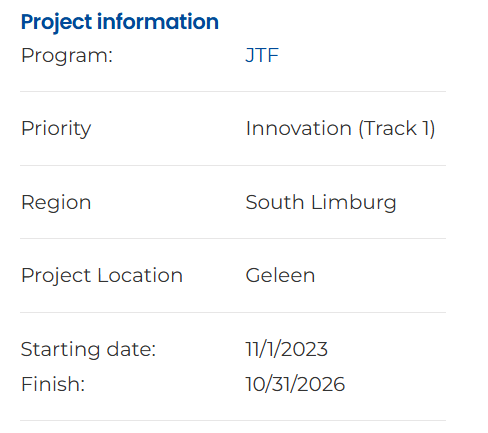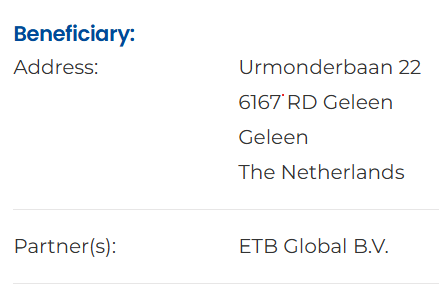JTF-project “From alcohol to green tires: Scale-up of green bio-butadiene"


The raw materials transition is an enormous challenge for the chemical industry, as most production processes are based on fossil feedstocks. Sustainability can be improved by developing production processes that use renewable, biobased feedstock instead. The applicant, ETB Global B.V., has developed a conversion process to produce the first ever bio-butadiene from bio-ethanol. 95% of butadiene is currently produced by fossil naphtha cracking and butadiene is mainly used for manufacturing of rubbers. ETB's product acts as a drop-in chemical, directly replacing fossil-based butadiene, so that the environmental benefits cascade throughout the value chain.
The goal of this project is to develop a pre-commercial demonstration plant at the Brightlands Chemelot Campus, resulting in green butadiene for the rubber industry. One of Sabic's crackers at Chemelot is shutting down in the coming years and many jobs will be lost. ETB's plant supports job retention by creating employment in a futureproof chemical industry, ideal for former staff from the fossil chemical industry. During the project, 15 FTE of operators and lab staff will be recruited and trained. Hereafter, the process is scaled up further and the full commercial plant offers an additional 20-30 jobs. ETB's innovative technology is based on their patented catalyst. The project leads to CO2 savings of 60 ton CO2eq compared to traditional butadiene production, achieving a CO2 reduction of 60 kton CO2eq upon scale up to the first commercial plant.
The economic potential of the innovative and sustainable bio-butadiene production will strengthen the industry of South-Limburg. The demand for green butadiene from downstream manufacturers (of e.g. synthetic rubber, latex, nylon and technical plastics) is enormous and supply is currently nil. ETB will supply the first ever 100% bio-butadiene.
Link to article: From alcohol to green tires: scale-up of green bio-butadiene - Just Transition Fund
The goal of this project is to develop a pre-commercial demonstration plant at the Brightlands Chemelot Campus, resulting in green butadiene for the rubber industry. One of Sabic's crackers at Chemelot is shutting down in the coming years and many jobs will be lost. ETB's plant supports job retention by creating employment in a futureproof chemical industry, ideal for former staff from the fossil chemical industry. During the project, 15 FTE of operators and lab staff will be recruited and trained. Hereafter, the process is scaled up further and the full commercial plant offers an additional 20-30 jobs. ETB's innovative technology is based on their patented catalyst. The project leads to CO2 savings of 60 ton CO2eq compared to traditional butadiene production, achieving a CO2 reduction of 60 kton CO2eq upon scale up to the first commercial plant.
The economic potential of the innovative and sustainable bio-butadiene production will strengthen the industry of South-Limburg. The demand for green butadiene from downstream manufacturers (of e.g. synthetic rubber, latex, nylon and technical plastics) is enormous and supply is currently nil. ETB will supply the first ever 100% bio-butadiene.
Link to article: From alcohol to green tires: scale-up of green bio-butadiene - Just Transition Fund



